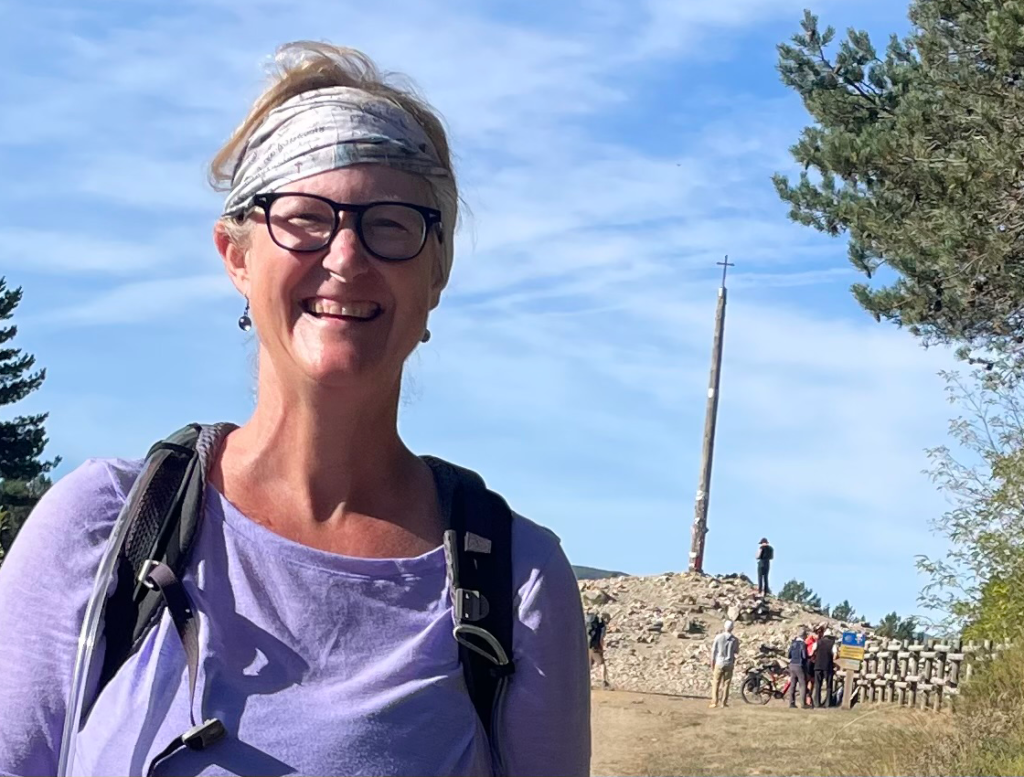I walked 500 miles through Spain to process my grief.
My father is dead—a fact that has lurked in the background of nearly every moment of my life for the last two years.
At times, it would sneak up on me and shake me to the core. Most of the time, I was overwhelmed by shame, fear, and sadness about all I did wrong after he was diagnosed with dementia and I found myself entirely responsible for his care. I did, even though it was not logical, feel responsible for his death. He had fallen in the night—possibly after a heart attack—which is how I found him, an image seared into my vision. After a time, anger became the dominant emotion, infecting every aspect of my life.
Something had to change. I decided to walk 500 miles through Spain.
The Camino Frances, a pilgrimage popularized in the movie The Way, is a journey that winds its way across Spain, ending at the tomb of Saint James in Santiago de Compostela. Since the 9th century, pilgrims have walked over mountains, through pine and eucalyptus forests with only what they could carry on their backs. Millions have walked in search of meaning and self-transformation.
About a third of the way to Santiago, there is an iron cross called the Cruz de Ferro where pilgrims leave a rock as a symbol of burdens they wish to lay down. In his last year, my father gave me a few painted rocks. It felt like a sign that I had to go.
I quit my job, packed up my belongings and gave notice to my landlord. With my father’s walking sticks and one of those rocks, I set off in September.
The journey gave me the space and time I needed to face my grief.
Four things I learned about the grieving process:
-
Death is an inevitable fact of the human experience.
My father was afraid of death and I was afraid to face his death so we both let that fear simmer just under the surface, often presenting as anger and frustration.
Every one of us will lose someone we love and our own lives—a fact that as a society we tend to hide from. When we talk about death, we use words like “unimaginable” or try to weaken the finality with a word like “passing”. When we see death as a failure and unimaginable, coping becomes a process of blame and shame. When we see death as a part of life, we can process grief as a right of passage.
-
Grief and loss are not the same thing.
Loss is an immutable fact. Grief is the emotional response to loss and therefore can be transformational.
After my father died, I was focussed on the loss and my emotions felt out of control. Once I tried to understand what I was feeling and why I was feeling it, I started to move through it to a place of compassion and forgiveness.
-
Grief is a shared human experience.
Shame hides in the shadows but when we talk to others about our feelings, we learn that we are not alone.
While walking the Camino, I spoke with people who also experienced doubt that they didn’t do enough as a caregiver. Caregiving and trying to work a full time job is nearly impossible, but so many of us are faced with this situation. I was not alone in second guessing difficult decisions and there is comfort in knowing that.
-
Grief is not something you endure but something you move through.
Initially, grief feels dangerous and I think freezing is a common human reaction. Find a way to move your body when you are able.
I would sit still for hours after my father’s death—numb. I had to move something. Not everyone needs to walk across a continent, but movement of any sort is a good start. Once you start moving your body, you can begin to move your emotions.
Is there life after loss?
Last week, I walked into Santiago de Compostela foot-weary but proud that I chose to follow a path of wellness. I walked 500 miles in 41 days with a 20 pound backpack and I feel better than I have in years.
When I started this journey I had a question: Will this grief ever end?
My answer is both yes and no. Grief changes when we face our emotions. I still miss and love my father and always will, but I am no longer frozen in uncontrollable sadness. I can tell stories about his life without immense pain. In fact, I feel like I’m living more fully.
Like the Camino Frances, life is a journey that will bring loss, beauty and a constantly changing landscape as long as we keep walking. Buen Camino.
If you are experiencing grief, you are not alone. We are here to help. Set up a discovery call today.

